Elizabeth Spann Craig's Blog, page 171
September 6, 2012
The Terms of Success—Guest Post by Diane Lefer
by Diane Lefer
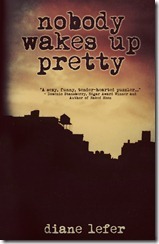 I think it was Muriel Rukeyser who said offer your work to publishers. A writer must never submit. Never never never submit. And oh! I know the righteous anger of the disrespected author! Do I complain? Oh yes, guilty as charged. But some years back, with two collections of literary short stories in print, I was invited to teach a class and give the keynote address at a writers conference. Time to reap the rewards!
I think it was Muriel Rukeyser who said offer your work to publishers. A writer must never submit. Never never never submit. And oh! I know the righteous anger of the disrespected author! Do I complain? Oh yes, guilty as charged. But some years back, with two collections of literary short stories in print, I was invited to teach a class and give the keynote address at a writers conference. Time to reap the rewards!
Now I did realize if a writers conference was having me as their keynote speaker, it couldn’t be the #1 conference in the world. And while they would cover my airfare and hotel, no, they couldn’t pay me. But of course I said yes. I got up at 3:00 AM to make my flight (with no food), and was met at the gate when I landed. So far, so good. I collected my luggage. My battered old suitcase had fallen apart in transit, everything was spilling out, and my guide set off at a trot in front of me while I tried to swipe underwear off the floor and hold the sides of the suitcase together with everything I hadn't lost along the way inside it. When I was dropped me off at a beautiful hotel outside of town. I thanked my guide and said I’d see her in the morning. “Oh, no,” she said with what seemed like true horror. “I would never attend the conference.”
Inside the hotel, people welcomed me and explained they were having a reception at 7:00 - freshen up and come on down. The reception which lasted till 11:00 p.m. was me paying for my own drink and no food. An elderly woman told me at great length about a trigonometry problem she couldn’t solve. Finally, I said how wonderful it was she was back in school. Oh, no, she said, this happened many many years ago. Next thing I knew I was awakened in my room at 4:30 AM by horror movie thumps down the hall which turned out to be the Wall Street Journal hitting each door.
At last it was late enough to head downstairs and try to rustle up a cup of coffee. (No coffee-maker in my room) But before I got my fix, this guy comes over and says he’s supposed to introduce me and then follows me around telling me all the problems in his marriage. The printed program had contradictory times and places for my class, so people didn’t know what time or where to go. A handful trickled in. My introducer spoke about himself--luckily, not about his marriage--for about 15 minutes after which he announced, “And now! Diane Leffler!” (which is close, but no cigar, when it comes to my name).
OK, I realize I’m not being generous in spirit. But really, after a woman told us all about her ex-husband’s suicide, he actually slapped his thigh and started telling suicide jokes. (Till then, I didn’t know there was such a genre.)
I didn't give up. Really. I really tried really hard to get people to explore the emotions of their characters.
“I can’t do that,” said one woman, “All of my characters are dogs.”
“Don’t your dogs have personalities?”
“Oh, no,” she said. “They’ve all passed away.”
I was ready to pass away from hunger. A kindly woman took me out to a corridor and explained we don’t really need to eat. It’s possible to get all the nutrients you need from the air. She led me in a bout of breathing exercises but I was still hungry.
At last, the luncheon banquet and my keynote address. I didn’t get to eat because I was at the podium, talking. Just as well. From what I could see, the other participants were served a sandwich of questionable tri-color (white, brown, and green) luncheon meat rather like what I consumed during a stay after a protest demonstration at the 77th Street holding cell in SouthCentral where another prisoner led us in singing the score to the Sound of Music.
My stomach growled, but inside my head those voices rang, raised in song, to remind me: The writing itself-- the freedom to express myself as I want and in the best way that I can--is surely one of My Favorite Things.
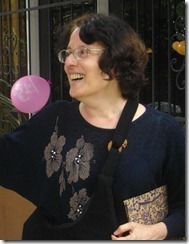 Diane Lefer's most recent book, Nobody Wakes Up Pretty (Rainstorm Press, 2012) features a New York City neighborhood in the process of gentrification and the web that connects organized crime families of different ethnicities with a missing Haitian girl, a midtown law firm, and a famous Japanese monkey. She is also the author of California Transit, a short-story collection that received the Mary McCarthy Prize, and the co-author with Colombian exile and torture survivor Hector Aristizábal of the nonfiction book, The Blessing Next to the Wound, named by Amnesty International as recommended reading during Banned Books Week.
Diane Lefer's most recent book, Nobody Wakes Up Pretty (Rainstorm Press, 2012) features a New York City neighborhood in the process of gentrification and the web that connects organized crime families of different ethnicities with a missing Haitian girl, a midtown law firm, and a famous Japanese monkey. She is also the author of California Transit, a short-story collection that received the Mary McCarthy Prize, and the co-author with Colombian exile and torture survivor Hector Aristizábal of the nonfiction book, The Blessing Next to the Wound, named by Amnesty International as recommended reading during Banned Books Week.
September 4, 2012
5 Low Cost Ways to Market Your Mystery By Kathryn Jones
by Kathryn Jones, @kakido
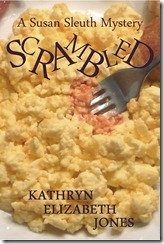 Strange but true. You may find that writing your mystery novel is easier than marketing it afterwards. Besides that fact that there are many things to do--you just don't have the money to spend on high priced marketing, but still want your book to get out there.
Strange but true. You may find that writing your mystery novel is easier than marketing it afterwards. Besides that fact that there are many things to do--you just don't have the money to spend on high priced marketing, but still want your book to get out there.
And you want to sell more than 10 copies.
What should you do first?
Get those reviews.
At least a month or two before your book is released, gather up reviewers who are interested in reviewing your book. Reviewers can be found by the bucketfuls online, through books sites, author sites, and review sites, but don't take just anyone who says they can review your book. Make sure that the reviewer is interested in your book by sending them a query with the details of your book: I have included a synopsis (the sort that would be on the back cover), my book's title, when my book will be released and by what publisher, and any other information the reviewer needs to make a decision. Once I hear from the reviewer I send my book. Many will take a Kindle or pdf version of my book, which saves time and money.
Make up Some Postcards.
Postcards with your book on one side and your synopsis and contact information on the other is a great way to market your book when you're away from home. It's easy to hand the card to a stranger and say a few quick words about your book, and the process is a lot less intimidating than trying to talk about your book without a prop. Postcards are inexpensive and are great to use at book signings too!
Share Your Love of Writing.
If you haven't already, begin your own blog. Make it about writing. What have you learned? What helps can you give others? Offer to guest blog for others and be willing to do interviews. Many blog owners are interested in doing interviews and the process is simple. Query the blog owner and ask to be interviewed. If they like what they see they'll send you a list of questions that you fill out and return to them. Be a speaker at a writer's workshop or conference or create your own experience and invite writers or readers to attend.
Offer Free Books.
Readers love FREE and you can get more readers than ever by offering your book on Kindle free during the first week your book comes out. You may also consider offering a print or Kindle version of your book to a lucky winner. Many blogs offer these contests.
Do a Video Trailer.
Yes, there are many companies that will offer to do a trailer for you but usually at a pretty hefty price. Do your own through animoto.com or voicethread.com. Come up with ways to share your work through places like Pinterest and YouTube. See two of my videos here:
http://animoto.com/play/1x8Q0qPqzDGlhYfzRCRN1w
http://animoto.com/play/I9LJrEQbI3XO1Tenm3EYow
Marketing may appear a bit "scary" to you, at least at first, but you don't need to be afraid to get out there and market your book. While some of your marketing will require you to speak up and be heard, the best news is that much of your promoting can still be done online--where most of your readers shop.
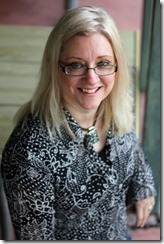 Kathryn has been a published writer since 1987. She has published various newspaper stories, magazine articles, essays and short stories for teens and adults. She is the author of: “A River of Stones,” a young adult fiction novel dealing with divorce published in 2002, and “Conquering your Goliaths—A Parable of the Five Stones,” a Christian novel published in January of 2012. One of her newest creations, a “Conquering your Goliaths—Guidebook,” was published in February of 2012. “Scrambled,” published in September 2012, is her first cozy mystery. Read her first chapter here: http://www.ariverofstones.com/scrambled.html
Kathryn has been a published writer since 1987. She has published various newspaper stories, magazine articles, essays and short stories for teens and adults. She is the author of: “A River of Stones,” a young adult fiction novel dealing with divorce published in 2002, and “Conquering your Goliaths—A Parable of the Five Stones,” a Christian novel published in January of 2012. One of her newest creations, a “Conquering your Goliaths—Guidebook,” was published in February of 2012. “Scrambled,” published in September 2012, is her first cozy mystery. Read her first chapter here: http://www.ariverofstones.com/scrambled.html
Kathryn graduated from the University of Utah with a B.S. in Mass Communication and a minor in Creative Writing. Her studies included work in creative writing, public relations and journalism. Recently, she has opened the doors to Idea Creations Press, a publishing services company that caters to writers and their writing, publishing and marketing needs.
September 2, 2012
Thinking Ahead—the Next Generation of Writers and Readers
by Elizabeth S. Craig, @elizabethscraig
 I was driving one of the interminable carpools that I drive on a daily basis during the school year. This was a middle school one and there’s a new member in it. The girl was sitting in the front seat with me (my daughter still being too light to sit in the front seat with the airbag), and I tried to make conversation with her on the way to the school. The only problems with this are that I’m horrible at small-talk and I’m even worse making small-talk with pre-teens.
I was driving one of the interminable carpools that I drive on a daily basis during the school year. This was a middle school one and there’s a new member in it. The girl was sitting in the front seat with me (my daughter still being too light to sit in the front seat with the airbag), and I tried to make conversation with her on the way to the school. The only problems with this are that I’m horrible at small-talk and I’m even worse making small-talk with pre-teens.
We made desultory conversation for a few minutes, mine of the stilted grownup variety. Then I asked hesitantly, “What do you like to do in your spare time after school?” Then I quickly added, in case she didn’t like to really do anything, “Or do you just like to chill out?”
“I like writing,” she said.
And I lit up. It’s funny how you have an instant connection with other writers, no matter the age, no matter the genre.
I keep hearing stories and reading articles about how the next generation has so much competing for their attention—that books are going to lose out. There have also been a few angst-ridden posts on how teens write poorly…that the texting culture has taken over.
In my admittedly unscientific observations, however, I see a lot of reading going on. But a lot of what I’m seeing just isn’t in a traditional format (print books and magazines). It’s happening on smartphones and iPads and Kindle Fires.
As far as I can tell, teens today write a heck of a lot more than the teens I knew back in the 80s. (I’m talking about general, non-creative writing). In the 80s, all the kids I knew spent hours on the phone. Now kids are all texting each other. Yes, it’s in shorthand. But they’re expressing their thoughts and feelings in words. When was the last time that happened in a conversational way since the development of the telephone? So they have an intimate connection with words (these days more through texting than email, as far as I can tell.)
I also continue running into kids who write. They usually come right out and tell me they’re writers, knowing that I’m a writer, myself. When I talk at the schools, there’s always at least one kid who comes up afterward to talk to me more about writing.
The books as we know them will probably change. The genres might change too, following the trends of the day. The important thing is the product—the story itself, and not the packaging. And the most important thing will still be readers. And these readers are still reading--despite the many sophisticated alternatives available to them.
That’s it for my observations, but I’m interested in hearing yours. What’s your outlook on the future of reading and writing for the next generation?
And Happy Labor Day to my friends in the States. :)
(Image: http://www.flickr.com/photos/kusamakura/ )
September 1, 2012
Twitterific
by Elizabeth S. Craig, @elizabethscraig
Twitterific is a compilation of all the writing links I shared the previous week.
The links are fed into the
Writer’s Knowledge Base
 search engine (developed by writer and software engineer
Mike Fleming
) which has over 17,000 free articles on writing-related topics. Sign up for our
free newsletter
for monthly writing tips and interviews with top contributors to the WKB or
like us on Facebook
.
search engine (developed by writer and software engineer
Mike Fleming
) which has over 17,000 free articles on writing-related topics. Sign up for our
free newsletter
for monthly writing tips and interviews with top contributors to the WKB or
like us on Facebook
.
I have a link of my own this week—I was surprised by a Washington Post mention. A pleasant surprise in a few ways, since the Post doesn’t usually focus on cozy mysteries. And it gave me some more books to put on my TBR list. :)
Have a great week!
Using a tickler file to organize your blog posts: http://bit.ly/Q3N9YP @CamilleLaGuire
States’ eBook Pricing Settlement: $69 Million: http://bit.ly/Rq8uZy @Porter_Anderson @paidContent @andyvuong
A look at the role of sycophants in crime fiction: http://bit.ly/Q6JSIm @mkinberg
5 Ways to Spot a Trustworthy Amazon Review: http://bit.ly/SMhVbx @janetboyer
A free directory of ebook pros--for covers, editing, formatting, & more: http://tinyurl.com/3mxg5zt
The Highly Sensitive Person and the Writer: http://bit.ly/PHm4Zn @HP4Writers
5 Women Writers Tougher Than Hemingway: http://bit.ly/PHm8Zn @bookriot
Ebook Best-Sellers: Where Are the 'Indies'? http://bit.ly/OaYQNm @MikeShatzkin @Porter_Anderson @sarahw
20 Strategies For Tackling That "Bottomless Pit" of Writing: http://bit.ly/P9svs9
Selling Flash Fiction Via E-Mail—Successfully: http://bit.ly/P9sGDJ @janefriedman
Working the writing network: http://bit.ly/PHmDmb @SouthrnWritrMag
Conference Networking--All About the People: http://bit.ly/PHmIpK
1 writer's look back on a year of self-pubbing: http://bit.ly/P9tAAj @livewritethrive
Amazon Is No Wal-Mart...Yet: http://onforb.es/PHn5kn @forbes
World's top-earning authors: http://onforb.es/PHn6EN @forbes
The 5 Elements of Writing Travel Articles: http://bit.ly/P9uywb @writersdigest
Social Media Networking: Be an Active Participant: http://bit.ly/QAcl5z
Genre blending with romantic elements: http://bit.ly/QAdyKc
More uses for your RSS feed: http://bit.ly/QAdDgW @Susan_Silver
8 Ways to Write Without Ever Touching the Keyboard: http://bit.ly/QAdQAw @4YALit
Types of fan fiction: http://bit.ly/QAecHn @guardianbooks
8 Tips for Using Facebook Scheduled Posts: http://bit.ly/QAeheb @smexaminer
Questions to Ask (& Strengthen) Your Minor Characters: http://bit.ly/QAemhW @writersdigest @brianaklems
How libraries are handling publishing's turmoil: http://bit.ly/Rq9Qn3 @franksesno @JDGsaid @Porter_Anderson
What to Do When Your Book Isn't Selling: http://bit.ly/QAeRJ8 @authormedia
Writing comics--sequential art pages, cover, char. designs: http://bit.ly/OfoM7i @79semifinalist
Can you begin with dialogue? http://bit.ly/RkvbCm @juliettewade
Tips for better blog commenting: http://bit.ly/OfoQny @JudyLeeDunn
Networking for Authors: 5 Survival Tips: http://bit.ly/Rkvj4V @diymfa
8 Tips for Promoting Your Book Online: http://bit.ly/OfoZHz @rachellegardner
The influence of MR James on the horror genre: http://bit.ly/Pw7bee @ThisIsHorror
Transition as metaphor: http://bit.ly/Pw1FZc @cdrosales
Get creative on demand: http://bit.ly/Pw1hd2 @diymfa
Writing the Book You Were Meant to Write: http://bit.ly/RkwhOs @writersdigest
5 Cases of Too Few or Too Many Hyphens: http://bit.ly/OfqUfd @writing_tips
How Not to Launch a Book: http://bit.ly/Rkwmlt @janetboyer
Ensure vs. Insure: http://bit.ly/RkwyBd @brianklems
On Sucking it Up and Celebrating What Matters: http://bit.ly/RRhEF0 @TaliaVance
Tips For Using Facebook: http://bit.ly/RRhJbC
1 writer reports in on a year of ebook sales: http://bit.ly/RRhOfx @WilliamKing9
Ordinary Characters Can Be Extraordinary : http://bit.ly/RRhZaE @livewritethrive
Research to Make Historical Fiction Come to Life: http://bit.ly/RRi91M @novelrocket
Show visceral reactions first: http://bit.ly/OiqYMV @JodieRennerEd
Selling Your Words: What To Do When Editors Pay Late: http://bit.ly/OiqZAo @ thewritermama
Google Analytics for Authors: http://bit.ly/PQ5r0b @TracyRAtkins @JFbookman @Porter_Anderson
The Road to an Agent: http://bit.ly/Oir3QI @ AdriennGiordano
Why Self-Published Books Look Self-Published: http://bit.ly/Oir6vJ @jfbookman
To rid yourself of perfectionism, try deliberately making mistakes: http://bit.ly/Oir7Qc
Recipe for a Delicious Sequel: http://bit.ly/OirbPZ @ TrudiCanavan
5 tips for writing historical fiction: http://bit.ly/Oiriv9
SAMPLE PAGES Q & A: http://bit.ly/Oirp9O @writeangleblog @catewoods
Formatting Dialogue: A Quick And Dirty Guide: http://bit.ly/OirqL9 @bubblecow
Top tips for writing a strong female hero: http://bit.ly/OirvhI @ Moira_Young
Build a Better Author Bio for Twitter: http://bit.ly/Oirz13 @janefriedman
"Science Fiction" and Literature – or Thoughts on Delany and the Plurality of Interprative Processes: http://bit.ly/OirB92 @KgElfland2ndCuz
Doubling Down on DRM: http://bit.ly/RRj02m @doctorow
25 things you should know about metaphor: http://bit.ly/OirJpe @chuckwendig {lang}
Persisting through rejections: http://natpo.st/OirNoS @NPBooks @rjellory
The Importance of Voice In Your Author Platform: http://bit.ly/RRkJoh @danblank
Why Writers Should Watch Anime: http://bit.ly/OityCw @manon_eileen
Stealing the Fire of The Gods: http://bit.ly/RnMNNR @SarahAHoyt
Can You Define Your Character in One Word? http://bit.ly/OitPoS @KMWeiland
How to Write Better: 7 Instant Fixes: http://bit.ly/RRliyx
What Sort of Writer Are You? http://bit.ly/OitZg5 @janetedwardssf
Why Having Too Many Ideas Is As Bad As Not Having Enough: http://bit.ly/RRlv4M @fuelyourfiction
How to Write a Novella: http://bit.ly/RRlDkJ @jamesscottbell
How to Read Your Writing Objectively: http://bit.ly/OiuBCq @ava_jae
Putting Together a Collection of Shorts: http://bit.ly/RnNfvl @SophieMasson1
10 Steps to Deconstructing a Novel: http://bit.ly/OiuOW6 @howtowriteshop
11 Ways to Prepare for NaNoWriMo: http://bit.ly/RnNl6q @PYOEbooks
10 Body Language Tricks for Deeper Characterization: http://bit.ly/Oiv07U @fictionnotes
5 TIPS on World Building from Scratch: http://bit.ly/RnNuqm @JordanDane
Keeping Up With Cover Specs: http://bit.ly/OivgUm @authorems
2 ways to hook readers: http://bit.ly/PHlEST
Digital Self-Publishing Checklist: http://bit.ly/PHlGtX @LoriDevoti
5 Things You Might Not Know About Amazon: http://bit.ly/PMzLGv @mediabistro
Pinterest: 10 Tips for Authors: http://bit.ly/RoIzp9 @nickdaws
An Author Platform Built on SPAM is Doomed to Fall: http://bit.ly/PMzR11 @kristenlambTX
10 Children's Books That Are (still) Frightening To Adults: http://bit.ly/PMA0BD @litreactor
Progressive Tenses: http://bit.ly/RoIP7s @theresastevens
Amazon and bogus reviews (can respect be bought?): http://bit.ly/Rq7XXB @jane_l @Suw @samatlounge @Porter_Anderson
3 myths about Amazon: http://bit.ly/RoIUbp @beth_barany
Publishing Is Broken, We're Drowning In Indie Books - And That's A Good Thing: http://onforb.es/RoJ0zL @forbes @dvinjamuri
Overcoming "Voice Anxiety" : http://bit.ly/PMAckb @litreactor
5 tips for hiring a blog designer: http://bit.ly/RoJrtM @huffman_jean
A Tale of Two Royalty Statements: http://bit.ly/RoNq9K @kristinerusch
Self-Publishing on a Budget: http://bit.ly/PMEJ6d
6 Reasons Why Everything in Publishing Takes So Long: http://bit.ly/RoNvui @chavelaque
10 Practical, Everyday Money Saving Tips For (Starving) Writers: http://bit.ly/RUgNTV @BryanThomasS
How to Rein In an Out-of-Control Story: http://bit.ly/OpkeLG @jodyhedlund
10 Relaxation Techniques & Stress Relievers for Writers: http://bit.ly/RUgUik @JordanDane
20 irrefutable theories of book cover design: http://bit.ly/RUh35h @guardianbooks
What You Can Learn About Yourself By Writing Every Day: http://bit.ly/RUhaxI @fuelyourwriting
The Principles of Possessives: http://bit.ly/RUhrRa @writing_tips
The Order Of The Storyteller: http://bit.ly/RUhwVe @SarahAHoyt
Day jobs can benefit our writing: http://bit.ly/Opl7Um @RayRhamey
1 writer lists the places she finds ideas for her writing: http://bit.ly/RUhSev @SouthrnWritrMag
A Quick and Dirty Way to Optimize Your Productivity: http://bit.ly/RUhXP9 @lifehackorg
Separating Productivity from Fear: http://bit.ly/Pm26Sf
On science writing: http://bit.ly/RUqEZT @notscientific
Using The Fantastic To Create A Harsh Wonder: http://bit.ly/Pm2sZe @sfsignal
The Business of Screenwriting: Chilled white whine: http://bit.ly/RUqVMs @GITS
12 Most Successful Ways to Take On a Huge Goal: http://bit.ly/Pm3qVe @12Most
A review of Scrivener: http://bit.ly/Pm6II7
Tips for getting published in a magazine: http://bit.ly/RUtM8f @bubblecow
How One Self-Published Author Landed A Movie Deal: http://bit.ly/Pm755B @thecreativepenn
Conquering Your Fear of the Semi-Colon: http://bit.ly/RUtRIV @theresastevens
Writing Conventions and How to Survive: http://bit.ly/Pm7cxO @traciewelser
5 Key Qualities of the High-Value Writer: http://bit.ly/RUu137 @jhansenwrites
Selling a script, but holding on to the characters: http://bit.ly/Pm7vss @johnaugust
3 Do-at-Your-Desk Exercises to Avoid Becoming Chair Shaped: http://bit.ly/RUufHm @problogger
The almost-kiss: http://bit.ly/Pm7LaW
The Revival of the Serial: http://bit.ly/Pm7WTC @jane_l
12 Magical Items and the Real Life Gadgets that Resemble Them: http://bit.ly/RUuxxQ @i09
On Writing Emotion: http://bit.ly/Pm8fxW
No, You Don't Have a Tribe: http://bit.ly/RUuCBS @danblank
In praise of ordinary romantic heroines: http://bit.ly/Pm8yJa @heroesnhearts
Details Can Make or Break Your Writing: http://bit.ly/RUuMJe
Bullet lists in a feature article? http://bit.ly/Pm8VTX @michellerafter
How Paperbacks Transformed the Way Americans Read: http://bit.ly/RUv4js @mental_floss
Where Do Sentences Come From? http://nyti.ms/NW71Pj @NYTimes
ABCs of Attending a Conference: http://bit.ly/Oq7x4E @Janice_Hardy
The Importance of Substantive Editing: http://bit.ly/Oq7HZZ @scholarlykitchn
What Star Trek Can Teach Us About Great Writing: http://bit.ly/Oq7PbW @kristenlambTX
Tips for collaborative writing: http://bit.ly/Oq81HY @indie_jane
Scenes: The Building Blocks of Your Story: http://bit.ly/Oq8k5M @KMWeiland
Copyright Is Not a Verb: http://bit.ly/NW7BNc @JaneFriedman
Great Character: Juno MacGuff ("Juno"): http://bit.ly/NW7S2G @GITS
How (Not) to Write Dialogue: http://bit.ly/Oq9dv0 @ava_jae
Managing Your Email Flow with POP & IMAP: http://bit.ly/Oq9gXU @authorems
Tips for Making Your Story Bigger: http://bit.ly/NW841G @threekingsbooks
The Quality of Self-Published Books: http://bit.ly/Oq9FcL @erinlausten
Setting–Adding Dimension to Your Fiction: http://bit.ly/NW8jKl @kristenlambtx
20 Words for Laugh: http://bit.ly/PPZYGG @writing_tips
Editing for character: http://bit.ly/PQ07Kp
Bad opening lines: http://bit.ly/RpZLqm @pubperspectives
Egyptian writers have temporarily given up on fiction: http://bit.ly/Rq0gkc @guardianbooks
How to Fit Blogging Into Your Busy Schedule: http://bit.ly/Rq0w2F @nickthacker
4 Reasons to Write Short Stories: http://bit.ly/Rq0B6v @joebunting
Building Your Production Capacity: http://bit.ly/PQ13OT @susankayequinn
The Best Backup Solution? http://bit.ly/PQ1vNd @lifehackorg
August 30, 2012
A 3-Step Way to Handle the Pain of Rejection by John Yeoman
by John Yeoman, @Yeomanis
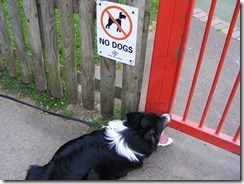 How do you tell a mother her baby is ugly?
How do you tell a mother her baby is ugly?
You don’t. You can't. Agents can't, either. We drop off our favourite child at their office, with love in our hearts, and wait for the compliments. When they don’t arrive, we cry: “But every limb is perfect! Count the fingers. And oh, that cute little dimple at both ends!”
Still, no sale.
Every new writer goes through that period of outrage. “He spat on my baby!” Agents know it. It’s why the better ones phrase their rejection slips with care: “It doesn’t suit our needs. But do pass it around. Someone else is sure to love it!” Nice agents scribble a personal footnote: “Don’t lose heart. Remember, Gone With the Wind was rejected 38 times.” Bad ones don’t reply at all.
None of it helps, does it? We inspect our ms, lying forlorn in its bassinet. We count its fingers. All there! We dress it up in a pretty new blurb. And we send it out again.
Same result. How can we ever tell ourselves: “There’s something wrong with my baby?” But we must.
The day we do it is the day we turn professional.
Here are three tested steps to becoming a pro author:
1. Get an independent critique.
Sure, the nice opinions of our friends and writing group can keep us motivated. A thoughtful buddy can also spot our most embarrassing mistakes. “Why is your character called Jim in chapter one and Jed in chapter two?”
But friends give dangerous advice at the editing stage because they don’t know what to look for. “I don’t like your hero.” “Why?” “He reminds me of my uncle Bill.” It doesn’t help...
Have your ms professionally copy edited!
It will cost around $8 (£5) per thousand words and, if you choose an experienced editor, it’s an investment. Your ms will be fine-tuned or, better still, mangled. Perversely, that’s good news.
Otherwise, how would you have known that your opening passage, the one you laboured on for weeks, has all the appeal of a stagnant ditch? Or that your protagonist (modelled on yourself) is as lovable as the south end of a pig?
It’s better to hear the cruel truth “your story sucks, it needs a total rewrite” than to waste more time and heartache sending it out again. That said, copy editors are not ghost writers. They’ll only rarely give you creative solutions. A rewrite is your problem.
2. Cut your losses.
If you hear “the story is 90% okay, just do these things”, do them. And resubmit your ms. If any agent was courteous enough to make comments on your first draft, send that good person your new draft saying “Thank you! I have totally reworked the ms in line with your suggestions.” Conscience alone should induce them to read it.
But if you’re faced with a total rewrite, ask yourself: “Am I really in love with this story? So much so that I’ll devote another year to it? And another?” A novel is not a marriage. If it’s not working, dump it. Start the next one. It will be a lot better. You’ve learned the errors to avoid, and acquired a whole new mindset of craft skills unconsciously, while editing your last novel.
3. Smack yourself on the side of the head.
Walk away from the past. Abandon your favourite plot themes, the characters you fell in love with, the settings you know too well. Haul them back into your new novel and you’ll just be stomping over the same territory. It didn’t work the first time. Why should it now?
Smack yourself on the side of the head.
Find an outrageously new theme, fresh characters, a different place and time. Of course, you can stay with the same genre if you’re truly in love with chick lit, sci-fi, historical romance, or whatever. Just approach it from a radically different angle.
And why not experiment with a hybrid genre?
If you’re familiar with the tricks of the noir detective novel they’ll work well in a sci-fi story. (See the fascinating result in China Mieville’s The City & The City.) A chick-lit story set in ancient Rome might work well too, and never mind the anachronisms. (Marilyn Todd did that with her brilliant I, Claudia novels.)
Give your new craft skills a fresh landscape to play in.
That 3-step plan should get you through the slump of rejection. Every author has been there and some mid-list authors still succumb to it, when they fail to earn out their advance. Yet the successful ones have picked themselves up and gone that route above, time and again, to the best seller lists. Just remember, Gone With the Wind really was rejected 38 times...
Dr John Yeoman, PhD Creative Writing, judges the Writers’ Village story competition and is a tutor in creative writing at a UK university. He has been a successful commercial author for 42 years. A wealth of further ideas for writing fiction that sells can be found in his free 14-part story course at:
http://www.writers-village.org/seminars
 Dr John Yeoman has 42 years experience as a commercial author, newspaper editor and one-time chairman of a major PR consultancy. He has published eight books of humour, some of them intended to be humorous.
Dr John Yeoman has 42 years experience as a commercial author, newspaper editor and one-time chairman of a major PR consultancy. He has published eight books of humour, some of them intended to be humorous.
Blog image: Jon McGovern, Flickr
August 28, 2012
Dusting Ourselves Off after Set-Backs
by Elizabeth S. Craig, @elizabethscraig
 The other mothers at the stables assured me that the day would come (probably sooner than later) when my daughter was going to come flying off her horse.
The other mothers at the stables assured me that the day would come (probably sooner than later) when my daughter was going to come flying off her horse.
Naturally, I assumed it would be later. :)
So when I picked up my daughter at horse camp a few weeks ago and saw that she was completely covered from head to toe in red clay (which is what passes for soil in many parts of the Deep South), I knew she’d been thrown.
The camp counselors were full of hurried explanations about a bucking horse and a stirrup that came off and the horse’s general disposition and youth. I listened a little, but mostly looked my daughter over. She was beaming. “I’m fine!” she said.
Well, apparently she hadn’t really been fine at first. There was a time when she’d lost the reins and clutched the horse’s mane in terror trying to hang on for dear life before flying off onto her head. Toby apparently hadn’t wanted to jump, and he hadn’t.
The counselor let her catch her breath and dust herself off. She’d also let the bucking horse gallop around the ring a few times to calm himself down. Then the counselor had my daughter climb back on the horse….not to jump, but to remind the horse that she was in charge. She also wanted to ensure that my daughter wouldn’t be scared to get on a horse again.
My daughter made up with Toby and even chose to ride the horse during her birthday party a week later.
Although I can’t say I was excited about her getting back on a horse that was misbehaving, I think it’s a smart way to deal with being thrown. It’s also a good policy for writers to adopt.
Situations where we might fall off the horse:
Querying
Getting rejected by agents.
Getting back on the horse:
Increasing scope of our queries (keeping them targeted.)
Rewriting our query.
Considering direct submission to publishers (carefully targeted).
Exploring self-publishing.
Writing another book.
Reviews (by readers, bloggers, professional reviewers)
Receiving poor reviews for our book.
Getting back on the horse:
Taking an analytical view of the reviews to see if there’s anything we can improve for our next book.
Working on our next book.
Reminding ourselves why we’re writing to begin with.
Sales
Sales fail to meet our expectations or our publisher’s.
Getting back on the horse:
Working on the next book.
Considering a pen name if querying other traditional publishers.
It’s interesting to me how many remedies come down to working on our next book. I know how exhausting that can seem when you’ve poured so much time and effort into finishing, revising, querying, and promoting a book. But really, it’s the only way to improve and have a better chance at success in this business. And it’s the only way not to feel overly-invested in one book.
How do you dust yourself off after a set-back?
August 26, 2012
Bowling for Blurbs by Douglas Corleone
by Douglas Corleone, @douglascorleone
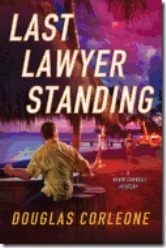 One of the toughest parts of being a new novelist is requesting blurbs from established authors. You’re not only asking an author to take eight to ten hours out of their busy schedule to read your manuscript, you’re asking them to endorse you and your book – you’re asking them to put their good name on the line to help you and your career.
One of the toughest parts of being a new novelist is requesting blurbs from established authors. You’re not only asking an author to take eight to ten hours out of their busy schedule to read your manuscript, you’re asking them to endorse you and your book – you’re asking them to put their good name on the line to help you and your career.
I was so put off by the idea of asking established authors for blurbs that I waited until my third novel to do it, and even then I asked someone I already considered a close friend. He read my book and provided a terrific quote, one that ends with: “Corleone is as good as it gets.” Although my third novel Last Lawyer Standing has only been out a few days, his kind and generous words have already generated sales and provided me several new loyal readers who raced out to purchase my first two novels and enjoyed them enough to write to me and tell me so.
Next spring I’ll be launching a new series of international thrillers, and this time around I wasn’t so shy. Thanks largely to the single blurb placed on the cover of Last Lawyer Standing, I had the courage to ask several A-List thriller writers to give my bound manuscript a read. Five of my favorite authors agreed to read my book, and I’m now anxiously awaiting their verdicts.
Bottom line is: blurbs from popular authors do work. Most blurbs are sincere, and after awhile, as a reader, you recognize those authors who are sincere and those who will put their name on any book that’s tossed in front of them. The authors I chose are all part of the former group, and for that reason I’ll truly be bowled over to have their names on the front and back of my dust jacket when my first “big book” is released next year.
 Douglas Corleone is the author of three crime novels published by St. Martin's Minotaur. His debut novel One Man's Paradise was nominated for the 2010 Shamus Award for Best First Novel. A former New York City defense attorney, Doug now lives in the Hawaiian Islands, where he is currently at work on his next novel. You can visit him online at www.douglascorleone.com.
Douglas Corleone is the author of three crime novels published by St. Martin's Minotaur. His debut novel One Man's Paradise was nominated for the 2010 Shamus Award for Best First Novel. A former New York City defense attorney, Doug now lives in the Hawaiian Islands, where he is currently at work on his next novel. You can visit him online at www.douglascorleone.com.
Author Photo--Jennifer Crites
August 25, 2012
Twitterific
by Elizabeth S. Craig, @elizabethscraig
Twitterific is a compilation of all the writing links I shared the previous week.
The links are fed into the
Writer’s Knowledge Base
 search engine (developed by writer and software engineer
Mike Fleming
) which has over 17,000 free articles on writing-related topics. Sign up for our
free newsletter
for monthly writing tips and interviews with top contributors to the WKB or
like us on Facebook
.
search engine (developed by writer and software engineer
Mike Fleming
) which has over 17,000 free articles on writing-related topics. Sign up for our
free newsletter
for monthly writing tips and interviews with top contributors to the WKB or
like us on Facebook
.
Thanks for coming by everyone! It’s nice to be back after my days away from the blog last week. And thanks so much for all the nice comments. Have a great week!
The Possible Cost of Segregating Stories by Gender: http://bit.ly/Ooswp0 @btmargins
Tips for writer's conferences: http://bit.ly/R8Z8oN @novelrocket
Using LinkedIn to Find Readers: http://bit.ly/R8ZawZ
Getting past perfectionism with free writing: http://bit.ly/R8ZdsM @karenschrav
Writing Third Person Omniscient: http://bit.ly/R8ZfRo
Guide to social media scheduling: http://bit.ly/R8Zhsy @lifehackorg
The step outline: http://bit.ly/SC45nu
What is an agent's/editor's responsibility to a querying writer? http://bit.ly/NM8zHp @Porter_Anderson @jurgenwolff
Color coded revision: http://bit.ly/SC4dn5 @ava_jae
Fifty Shades of Grey matter: the psychology of sexual arousal: http://bit.ly/SC4mqp @garwboy
What's not to like about 'like'? http://bit.ly/SC4qqp
Improve Your Character Instantly: Just Add a Ghost: http://bit.ly/SC4xSR @KMWeiland
Psychology Q&A: Schizophrenia & Police Work? http://bit.ly/SC4Flj @CMKaufman
Taking Responsibility as a Writer: http://bit.ly/SC4Lt5 @ginarosati
6 Laws for Becoming a Career Author: http://bit.ly/SC4O84 @duolit
Tips for social media automation: http://bit.ly/SC4TIV @nickthacker
5 Things to Track on Google Analytics: http://bit.ly/SC4Z3u @karencv
Getting to the Core of Your Characters: http://bit.ly/SC57zY @livewritethrive
7 secrets about editors every freelance writer should know: http://bit.ly/SC5g6p @MichelleRafter
Renew Your Love Affair with Pinterest: http://bit.ly/Pw15uB @kristenlambtx
Get creative on demand: http://bit.ly/Pw1hd2 @diymfa
The Philosophical Roots of Science Fiction: http://bit.ly/Pw1sVY @charliejane
Transition as metaphor: http://bit.ly/Pw1FZc @cdrosales
POV in genre fic: http://bit.ly/Pw2mSb @sfsignal
Contract deal-breakers--the agent clause: http://bit.ly/Pw60eS @KristineRusch
How POV Works: http://bit.ly/Pw6r9d @KgElfland2ndCuz
What Killed the Thriller Writer: Your Attention Span: http://bit.ly/Pw6OjR @mrichtel
The influence of MR James on the horror genre: http://bit.ly/Pw7bee @ThisIsHorror
Sales--don't shoot yourself in the foot (5 tips): http://bit.ly/Pw7zte @deanwesleysmith
The Point of Process Porn: http://bit.ly/Pw7Jku @JustineLavaworm
8 Ways Haiku Helps Fiction Writers: http://bit.ly/Pw7R3n
Tips for beginners on getting published: http://bit.ly/Pw81rt @howtowriteshop
100 Best-Ever Teen Novels: http://n.pr/Pw86vo @nprbooks
Pros and Cons of Small Presses: http://bit.ly/Pw88mM @JessicaKnauss
Ebook Best-Sellers: Where Are the ‘Indies’? http://bit.ly/OaYQNm @MikeShatzkin @Porter_Anderson @sarahw
Create a Writing Schedule that Fits Your Life: http://bit.ly/Pw8c69 @authorems
Don't lose faith in yourself--strive to do what you love: http://bit.ly/Pw9HkS @jodyhedlund
The Importance of Rising Tension in Your Story: http://bit.ly/Pw9Jci
Go ahead, tell people about your book: http://bit.ly/Pw9Sg6
How to Legally Use Your Own Photos on Your Blog: http://bit.ly/Pwa0fu @MarcyKennedy @MelindaVan
Indie Writers: 10 Things Not To Do: http://bit.ly/TQkgjv @woodwardkaren
Bookstores vs. Amazon – A Publisher's View: http://bit.ly/TQko2G @behlerpublish
Author platform tips from NYT bestseller Rebecca Skloot: http://bit.ly/TQkrLE @danblank
Electronically Autograph Books: http://bit.ly/TQkCqp @adriennedewolfe
Should Writers Rethink Butt-In-Chair Mentality? http://bit.ly/TQkLdu @writeitsideways
Synopsis Writing - 101: http://bit.ly/TQkOWE
Tips for making your own business cards: http://bit.ly/TQkVBv @JillKemerer
The Right Way and Wrong Way to Let Your Mind Wander: http://bit.ly/TQpifV @i09
The Waiting Game: Analyzing the Library Hold List: http://bit.ly/TQpnAa @kimthedork
Character Questionnaire: How Would Your Character Handle These Situations? http://bit.ly/TQpCv9
Why 1 writer reads all his reviews: http://bit.ly/TQpHio
On being a submissions editor: http://bit.ly/TQpJa2
What Your Favorite YA Series Says About You: http://bit.ly/TQpOus @flavorpill
Never Happier Than When Writing: http://bit.ly/TQq6l8 @passivevoiceblg
Storyboarding – Not Just for Plotting Anymore: http://bit.ly/TQqDDw @joanswan
How Plugins Can Take Your Author Website from Okay to Outstanding: http://bit.ly/OSndBd @jfbookman
Find Your Voice, Find Your Power: http://bit.ly/OSoTdX @RLLaFevers
What writers get from social networking: http://bit.ly/OSp2OC
When to italicize: http://bit.ly/OSp8Wj @livewritethrive
Self Publishing Your Poetry – A Primer: http://bit.ly/OSpkVv @magdalenaball
Fixing broken characters with fusion: http://bit.ly/OSr3tY
How to Journal: 6 Tips to Boost Creativity and Polish Your Writing: http://bit.ly/OSrnJj
5 Common Writer Scams: http://bit.ly/O72Y0R @duolit
Why Use Multiple POVs? http://bit.ly/O738VX @ava_jae
5 must-have creativity apps: http://bit.ly/O75Meq @tannerc
Shameless Self-Promotion vs. Shameful Self-Promotion: http://bit.ly/O76MiL @goblinwriter
8 Easy Ways To Grow Your Social Media Footprint: http://bit.ly/O76XKZ @jhansenwrites
The Most Common Pitch Meeting Mistake (That You Don't Know You're Making): http://bit.ly/O771dz
Keep connected words/phrases together without intervening elements: http://bit.ly/O779Kg
What Every Author Needs To Know About Alt Text: http://bit.ly/O77eO6 @authormedia
Relax while writing: http://bit.ly/O77DzP @howtowriteshop
What to do with Defeat: http://bit.ly/O77HzH @EmilyWenstrom
How Often Should You Blog? http://bit.ly/O77VXE @problogger
The demise of books has been predicted for decades: http://nyti.ms/O78QaB @NYTimes
Religion in Worldbuilding: http://bit.ly/O790i8 @BryanThomasS
When does a DRM become a nightmare? http://bit.ly/O79eG2
Types of plots: http://bit.ly/O79qVA @writing_tips
Proofread for Consistency and Convenience: http://bit.ly/O79wwq
What to do When Your Word Count is Too Low: http://bit.ly/QrFZtu @joebunting
Authors Guild v. Google: http://bit.ly/QrG54A @dearauthor
5 things to do when you're between projects: http://bit.ly/QrGaoO @YAHighway
5 Things Bruce Lee Taught 1 Writer About the Art of Writing: http://bit.ly/QrGiVm @writersdigest
How Much Can You Achieve In 4 Years? http://bit.ly/QrGofB @thecreativepenn
A scientific explanation of Harry Potter's "wizarding gene": http://bit.ly/NmKsO4 @io9
Why 1 writer is self-publishing: http://bit.ly/NmKup2 @litreactor
The motivation to write: http://bit.ly/NmKAgu @beth_barany
Write to the emotion: http://bit.ly/O8L7H4 @sarahahoyt
Pet Peeves of a Professional Editor: http://bit.ly/NmKSE8
Are fan fiction and fan art legal? http://bit.ly/NmKZiP @i09
Thoughts on running a free book promo for a debut author: http://bit.ly/NmLuJO @annerallen
6 Ways to Pull off Dual Timelines in Your Novel: http://bit.ly/NmLOrU @KMWeiland
Make it happen IN the scene: http://bit.ly/NmLZn5 @theresastevens
Be multi-directional to your approaches to setting and character: http://bit.ly/NmMUE7
Getting "too quiet and midlist" as a reason for rejection: http://bit.ly/NmNcuQ @nicolamorgan
Writing Your First Novel: 6 Pieces of Advice: http://bit.ly/NmNkKT @sraichlen
Real vs. fictional settings: http://bit.ly/NmNp18 @junglereds
What is indie publishing? http://bit.ly/NmNulq @passivevoiceblg
The evolution of sexuality in SFF: http://bit.ly/NmNx0z @fantasyfaction
Grounded in a scene? A critique of an opening scene: http://bit.ly/NmNEJB @janice_hardy
Stop, Look, and Listen for Better Book Marketing: http://bit.ly/NmNJgf @writersdigest
5 Types of Modifying Mistakes: http://bit.ly/NmNKAT @writing_tips
What To Do About Cranky Authors: http://bit.ly/NmNPEw @JustineLavaworm
Copyright: Or Creditright? http://bit.ly/OdzRcr @Porter_Anderson @jeffjarvis
What Offer Does Your Author Blog Make? http://bit.ly/PHjyT6 @jfbookman
The Polarisation of Publishing: http://bit.ly/PHjGSB @danielsm1
The Fear of Being Scooped: http://bit.ly/PHjIK3 @davidbcoe
Use of Adjectives and Adverbs: http://bit.ly/PHjMJP
How to Outline a Story: http://bit.ly/PHjO4q @LyndaRYoung
Correcting Problems with Pacing: http://bit.ly/PHjWRt @JulieEshbaugh
The Red Flags of Writing Contests: http://bit.ly/PHl6wt @victoriastrauss
5 Ways to Respect Your Writing: http://bit.ly/PHlaMx @krissybrady
What to Tell Agents While on Submission: http://bit.ly/PHlfjh @Kid_Lit
The Zen of Backstory: http://bit.ly/PHlhHY @ashkrafton
Can Readers Trust Book Reviews Online? http://bit.ly/PHlnzw @NinaBadzin
Ebook Formats: A Quick Guide For Self-Publishers: http://bit.ly/PHlr1W @bubblecow
The Typography of Authority — Do Fonts Affect How People Accept Information? http://bit.ly/PHlwD1 @scholarlykitchn
Amanda Hocking's Unusual Writing Schedule: http://bit.ly/PHlAmg @woodwardkaren
2 ways to hook readers: http://bit.ly/PHlEST
Digital Self-Publishing Checklist: http://bit.ly/PHlGtX @LoriDevoti
Why Something Has to Happen in Your Story: http://bit.ly/PHlI5d @joebunting
Heating back up after a burn out: http://bit.ly/PHlPxt @writerstephanie
Why Writers Should Let Their Manuscripts Cool: http://bit.ly/PHma3b @ava_jae
Copyright: Or Creditright? http://bit.ly/OdzRcr @Porter_Anderson @jeffjarvis
When a Character Lacks Social Skills: http://bit.ly/PHme38 @jeanniecampbell
When Critique Partners Disagree: http://bit.ly/PHmfUy @juliemusil @lisagailgreen
August 22, 2012
Short Break
I’ll be back on Sunday with Twitterific, but will be on break until then. I’m suddenly the aunt of twins. :)
August 20, 2012
Jump Back Into Your Story
by Elizabeth S. Craig, @elizabethscraig
If life hasn’t hijacked your writing schedule, then you’ve either been very lucky or else you haven’t been writing for very long.
Writing first thing in the day helps with this—but it’s not a sure-fire fix, either.
The important thing is not to let our falling behind completely shut us down.
I’m probably about 8 or 9 pages behind right now on my current project after a wild last week. I wrote every day, but I couldn’t make my daily goal. What I’ll be doing this week:
Jumping back into our story:
Consider limited Re-reading: The worst part is losing the story thread. I’ll usually read the last couple of pages and just forge ahead. If I poke around too long in past pages, I start getting my editor hat on. For me, that kills the creative process. But every writer is different. And this is harder to do if you’re way behind.
Timer: I’ll write as quickly as I can for 10 minutes. I won’t worry about if it’s something that’s going to need to be cut later. The important thing is making process on the story…mentally, that’s important. The next day, the writing will be more focused.
Lists: At the very least, sit down and make a list for options for your next scene, options for your character’s development, options for the next big conflict. Get your mind back into the story again.
Silence your inner critic: It’s not doing us any good.
Don’t try to catch up: It’s not fun to meet your daily goal and then write more than that to satisfy your catch-up goal. If I’m not close to a deadline (and right now I’m not), then I’m going to forget about those 8 or 9 pages I’m behind on. Each day is an opportunity to meet that day’s goal.
The important thing is to pick up our story again. It might be that the only way of doing that means taking a small notebook on the go to jot down story notes. I’m doing that today when I take my kids to their dentist appointment. Just figure out a way to fit it in.
How do you jump back into your story after a break?
Image: Flickr: Hamad AL-Mohannna




